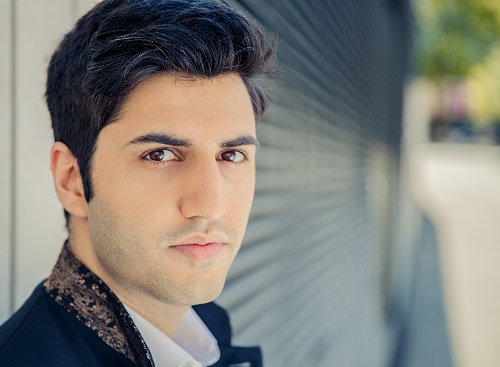 Switzerland Dvořák, Smirnov, Lutosławski: Kian Soltani (cello), Tonhalle Orchestra Zurich / Jakub Hrůša (conductor). Tonhalle, Zurich, 19.5.2022. (JR)
Switzerland Dvořák, Smirnov, Lutosławski: Kian Soltani (cello), Tonhalle Orchestra Zurich / Jakub Hrůša (conductor). Tonhalle, Zurich, 19.5.2022. (JR)

Dvořák – Cello Concerto in B minor, Op.104
Smirnov – Pastorale, Op.15
Lutosławski – Concerto for Orchestra
Dvořák was in America from 1892 to 1895, not in exile but earning lucratively at the New York Conservatory of Music. After composing the New World Symphony there, he went on to compose his cello concerto, which enjoyed immediate success.
Soloist Kian Soltani was born of Persian parents in Bregenz, Austria, a stone’s throw from the eastern border with Switzerland. At the age of twelve, he trained at the Musikhochschule in Basle and in 2017 he was granted the prestigious Credit Suisse Young Artist Award.
A full-blooded orchestral opening showed Jakub Hrůša full of energy. Ivo Gass’s horn solo was faultless; clarinetist Felix-Andreas Genner frequently stood out. Soltani was meltingly tender in the slow passages, eyes closed and often looking to the heavens; in the wilder passages, he was exuberant, exhilarating and his technique flawless. The first movement ended with a resplendent brass flourish. In the slow movement, Soltani was ardent and ravishing; the audience was utterly mesmerised. The audience and orchestra were clearly enamoured with Soltani’s beautiful tone and skill and were rewarded with an unusual encore. Soltani explained, in German, that when Dvořák was composing his concerto, news reached him of the grave illness of his sister-in-law; the slow, wistful section in the second movement quotes his song ‘Leave me alone in my dreams’ which had been a favourite of hers. Soltani, accompanied by the entire cello section of the Tonhalle Orchestra, and the principal double bass, played that very song, most touchingly.
Russian composer Dmitrij Smirnov was not, I must admit, a name I knew. Born in 1944 in Minsk, he emigrated to Britain in 1994, after having been blacklisted at a Congress of the Union of Soviet Composers for ‘unapproved participation’ in some festivals of Soviet music in the West. Sadly, Smirnov died in 2020 from complications following a Covid-19 infection.
Composed in 1975, Smirnov’s Pastorale, given here at its Swiss première, only lasts twelve minutes. Dawn murk lifts to try to bring morning sunshine, but grey gloom soon descends: is this Moscow, Minsk or foggy London? The sound of the night eerily resembles air raid sirens and my thoughts went to the Blitz or to Ukraine. There is screechy rather than happy birdsong from flutes, piccolo and strings, the sound of thunder from the timpani, the sounds of nature but both more in their threat than in their beauty. The work is tonal, rhythmically unrestrained, multi-layered and expressive; sadly, it occasionally descends into dirge. There is a cacophonic passage where all four percussionists are given virtual free rein. A gong signals the changes from night to day and back to night, and the work ends peacefully. The orchestra and conductor should be applauded to have brought this composer and his unusual work to the attention of the Swiss audience.
Polish composer Witold Lutosławski also suffered at the hands of the Soviets. Stalin banned his First Symphony for being ‘formalist’, allegedly only accessible to the elite. His Concerto for Orchestra stems from 1954 and is one of his best-known works. It is heavily influenced by Polish folk tunes; the extensive source material was found in Lutosławski’s attic after his death.
The concerto employs a huge orchestra, three flutes, three oboes, three clarinets, three bassoons, four horns, trumpets and trombones, two harps, two keyboards and a bevy of percussionists. It can consequently make quite a noise. There is visceral menace in the opening Intrada, a gentle Capriccio for strings and side drum (interrupted by a militaristic passage bringing Shostakovich’s Tenth Symphony – composed a year before the Concerto – to mind). Some of the passages were also very reminiscent of Britten’s ‘Sea Interludes’ from Peter Grimes – written in 1945. Czech-born Hrůša is at the helm of the Bamberg Symphony Orchestra and second fiddle (behind Semyon Bychkov) at the Czech Philharmonic and the Academy of Santa Cecilia in Rome; he was full of boundless energy and the orchestra responded with visible pleasure of the work. The ending was apocalyptic and received roars of appreciation from an audience, which pleasingly seemed to have many younger members. This concerto, full of interest, is not a work we hear all that often – it fully deserves more frequent outings.
John Rhodes